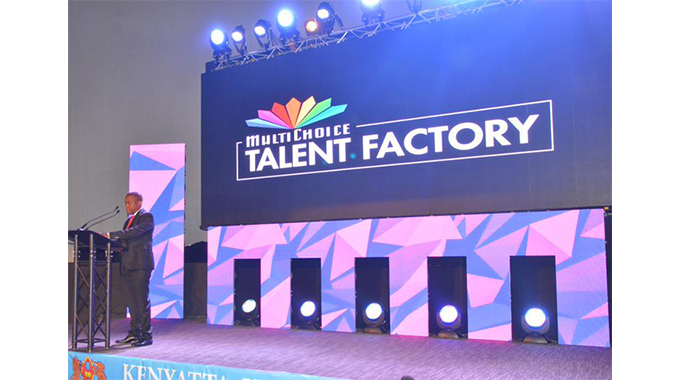First licensed community radio station since Independence, Ntepe Manama Community Radio speaks on vision

Mthabisi Tshuma, Features Correspondent
ON 17 December last year, a new dawn arose in the media sector as the Broadcasting Authority of Zimbabwe (BAZ) announced the granting of three community radio licences as well as two campus radio stations.
The licensing of Ntepe Manama Community Radio Trust, Mbembesi Development Trust trading as Ingqanga FM and Nyangani Community Radio Trust trading as Nyangani FM, is in line with the African Charter on Broadcasting’s three-tier broadcasting system.
Campus radio licences were granted to the Midlands State University and University of Zimbabwe.
The three-tier system comprises public, commercial and community broadcasting, that Misa Zimbabwe, together with the Zimbabwe Association of Community Radio Stations (Zacras), have incessantly been advocating for over the years in conformity with regional and international instruments that Zimbabwe is a signatory to.
In pushing for the licensing of community radio stations under its protracted Free the Airwaves Campaign, Misa Zimbabwe established preparatory Community Radio Initiatives throughout the country.
The newly licensed Ntepe Manama Community Radio Trust in Matabeleland South Province is one such initiative.
Coincidentally the station’s license number is CRBCS/0001 which literally means it is the first community radio station to be licensed in Zimbabwe since the country attained independence in 1980.
The radio station initiative came about in 2009 where the community deep in Gwanda South at Ntepe Village brought their heads together to say they needed their voices to be heard beyond the village and country’s borders.
Led by veteran journalist Mvelo Mthiyane Zondo, who is the current station coordinator and the station’s board chairperson the late Mr Owen Mhletshwa, villagers would gather from time to time under the “network spot” tree in front of Ntepe Business Centre shop, Majiya Investments.
There, issues on how the station would help change their lives and popularise their marginalised languages that include Sotho and Venda were discussed.
Day in day out, week in week out, year in year out, the frontrunners held firm to their dream.
With support from the local leadership and the community, the station has grown and has found a neutral location which is Manama.
This is so as it is targeting to cover a 40km radius that will reach areas like Mlambapeli Village which has a border post separating Zimbabwe and Botswana, Makhado, Garanyemba among other places.
Fast forward 12 years later, Ntepe Manama Community Radio (NMCR) has paid its 10-year license and is expected to be on the airwaves before year end, next year.
The station is currently relaying information to villagers through bulk SMSes, WhatsApp chat groups and on its social media pages namely Twitter using the handle @nteperadio, Facebook and YouTube page named Ntepe Manama Community Radio.
Mr Zondo said the station is community oriented and will at all times put the community first.
“The radio station was formed around 2009 at Ntepe business centre and was initiated by Misa Zimbabwe. When we started we would produce newsletters of information of interest to the community and we also had CD productions in 2010.
“With the change of technology the broadcasting strategies started to change with time. Currently the station is into bulk SMS, newsletters, CD and social media platforms which include Facebook, Twitter, WhatsApp, Kombi casting, Podcasting and we also engage in community meetings and all these programs are community driven because the radio station is for the people by the people, with the people,” he said.
Mr Zondo said the community radio is conducting its programmes using local languages that include Sotho, Venda and Ndebele.
“The information shared in these platforms are mainly local stories at 85 percent, 10 percent of national stories and five percent of international stories.
“All in all the vision is to be a competitive station that will develop the community through information dissemination. We are objected to be a platform for debate on social, economic, cultural development issues that affect the community,” said Mr Zondo.
He said they hope to realise the goals of their mission which is to provide fair, accurate and balanced information as well as encouraging freedom of speech and expression.
“Our principles and values are to be transparent, to preserve and respect the Jahunda culture, to uphold integrity, fairness, diversity and professionalism, value the community involvement, to uphold and respect gender equity and disabled while out target areas are remote areas which are information starved with less or no media coverage.
“The target group includes and is not limited to women and children, youths, people living with disabilities, people living with HIV and Aids while the target reach is more than 14 000 community people who are in rural areas and are information starved,” he said.
Over the past months, NMCR using their social media pages have had success stories that include busting cattle rustlers leading to recovery of villagers’ stolen cattle, unpacking the vaccination process in Gwanda district and the province at large, updating villagers on opening of schools among other stories.
The station is currently premiering a programme which is an educational campaign on TB and Covid-19 and premiers on their YouTube page every Thursdays at 6.30PM
BAZ acting chief executive officer Engineer Mathius Chakanyuka said the licensing of the community radio station is a milestone achievement for the country and they have so far licensed six community radio stations plus campus radios.
“Licensing of the community radio stations is a historical initiative, or rather a big milestone within the Zimbabwean Broadcasting Industry.
“Since 1980 there was no Community Radio and I would like to say thumbs up to the Second Republic for its unwavering drive to free up the airwaves and promote freedom of expression: A great move towards the realisation of a 3-tier broadcasting system which is an International standard for broadcasting services,” said Eng Chakanyuka.
Eng Chakanyuka said they are committed and are mapping strategies to support the licensed community radio stations to go live on air. — @mthabisi_mthire









Comments